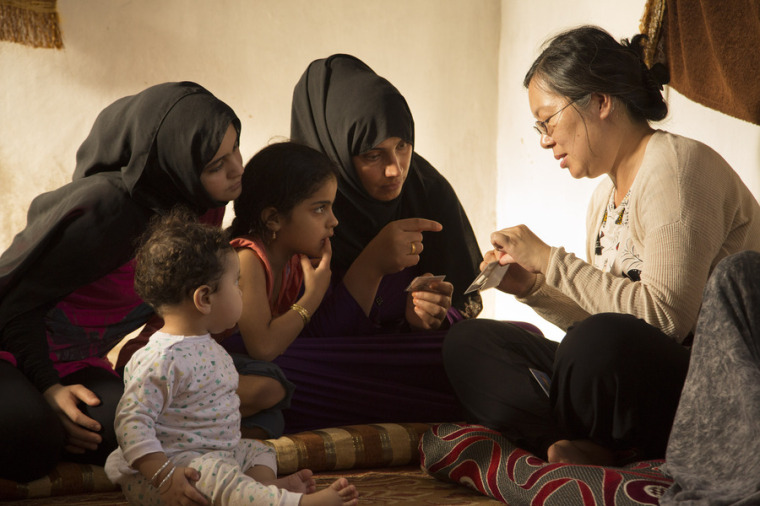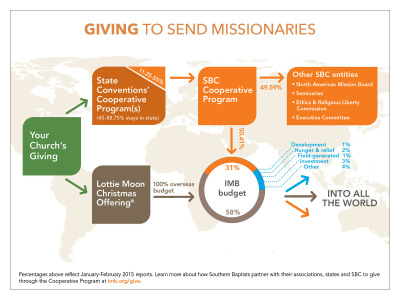CRISIS: Southern Baptists seek ways to assist unemployed missionaries

RICHMOND, Va. (Christian Examiner) – After the International Mission Board's (IMB) shocking announcement in August about a serious budget deficit, what will happen to the 600 to 800 overseas missionaries whose jobs it announced it will cut during its "organization reset"?
Southern Baptists have responded to the 170-year-old organization's financial crisis — rising through the past few years and finally requiring the IMB to stop relying on reserves and make some heart-wrenching personnel cuts — by welcoming home missionaries with help finding housing, transportation, and jobs.
Diana Gregory, an alias for an IMB missionary in Asia, describes IMB's financial choices in terms of a football game. "IMB is like the quarterback," she told IMB. "They have thrown the VRI and LMCO ball. Southern Baptists are not only catching the ball, they are running 99-yard touchdowns."
Gregory is referring in part to the North American Mission Board's (NAMB) four million dollar gift to IMB." "I am praying that people will see what Southern Baptists are doing and will see His glory," she added.
WHO IS AFFECTED
According to the FAQ page on the IMB website, the "major adjustment" to missionary and staff numbers means a reduction of missionaries and staff by 600-800 people, or about 15 percent of the organization's 4,800 missionaries and 450 staff.

As IMB President David Platt explained in an open letter in September, 2015, shortly after the announcement, "With 80% of our budget being devoted to personnel salary, benefits, and support expenses, we inevitably realized that any effort to balance our budget would require major adjustments in the number of our personnel."
Many churches have offered practical support for returning missionaries, says Clyde Meador, IMB's transition team leader.
Eligible missionaries have been offered a voluntary retirement incentive (VRI) to make reductions less tragic.
"The majority (of missionaries accepting the VRI) are seeking God's leadership for what, where and when," said Meador. "They are living firmly in the confidence that God led them to take a step, but they don't know what's next."
WHY THIS IS NECESSARY
The figure "600 to 800" isn't just numbers but individuals, Platt said, people who have answered the call to share the Gospel abroad.
"Regardless of where we find ourselves six months from now, of this I am sure: it will be good, and God will be glorified."
In an update about the VRI, IMB announced the stages of its reduction, which will be effective at the end of this year, and said it was a little too early to forecast how many missionaries and staff are taking the VRI.
Platt wrote the financial needs of IMB were neither a surprise nor a secret. "When we stepped back and looked at IMB finances since 2010," he said, "we realized that IMB has spent a combined $210 million more than people have given to us. By God's grace, we have been able to cover these costs through reserves and global property sales. But we don't have an endless supply of global property to sell, and our cash reserves are no longer at a desirable level for good stewardship going forward."
Initially and with caution, "IMB leaders project we will meet the need to reduce the total number of personnel by at least 600 people," the organization reported, adding the responses are preliminary and 600 was the minimum necessary number of reductions," the website announced.
Eligible personnel had a Nov. 2 deadline to accept or reject the VRI, though they may rescind their decision as late as Dec. 11. IMB will also implement a second phase of reduction, a "Hand-Raising Opportunity," for its employees to "pray about whether the Lord is leading them to a new place of involvement in mission outside the IMB."
WHAT DOWNSIZING MEANS FOR MISSIONARIES
In their book "Coming 'Home': The Reentry Transition," Ron and Bonnie Koteskey of New Hope International write about the need for missionaries to process the good and the bad from their life abroad.
"Even though we want to leave these [bad] things behind, sometimes we have difficulty doing it. We may want to forget about some, but events keep occurring to remind us of them," the Koteskeys write to missionaries, their churches, and their friends and family.
"We may feel ashamed of others, and we keep reminding ourselves of those. To continue the transition process and really leave them behind us, we usually have to recall them, think about them, and place them in the perspective of our whole life story," the couple adds.
Read more about a resource booklet offered to missionaries who volunteered to return to the United States.